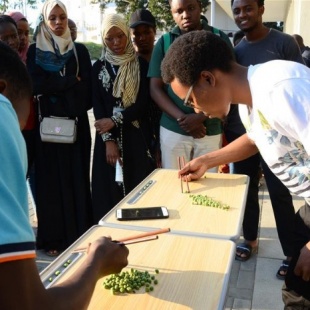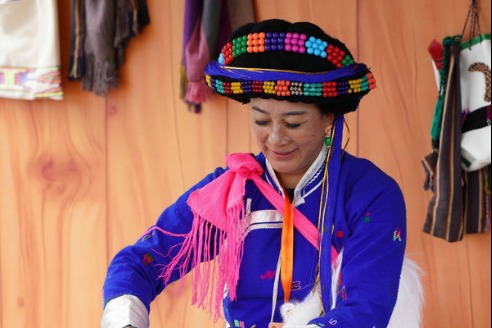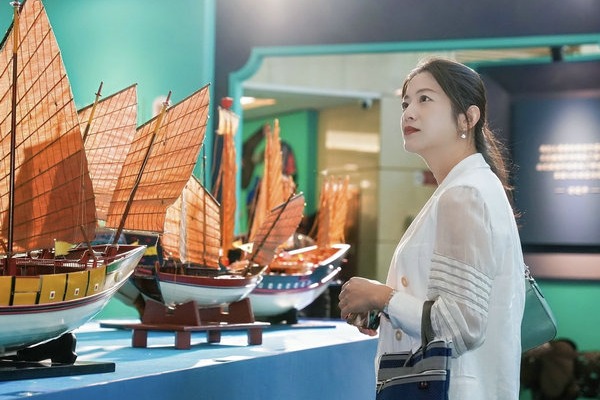Tanzanian girl's love for Chinese language brings her career in education

Deeply attracted by the Chinese language and cuisine in TV programs as a little girl, Imani Haji, a 28-year-old teacher working with the Confucius Institute at Dar es Salaam University (UDSM), has decided years ago to visit China and learn the language.
I was really fascinated by Chinese songs and various delicious dishes back then, said Haji, whose Chinese name is Han Ya. "I even quarreled with my brother several times after he changed the channel airing Chinese TV programs at that time," she added, with a giggle.
For Haji, the year 2012 is a turning point for her Chinese language study as she entered university in the same year and Chinese language was offered as a selective course.
That's the first time for me to learn Chinese with a professional teacher and on a regular basis, which encouraged my passion for the language, said Haji.
During university time, Haji passed a couple of tests in the Chinese Proficiency Test (HSK) and won a scholarship to continue her study in China in 2015.
Studying in China was an unforgettable experience, said Haji, who spent three years in China's northeast city of Harbin, which is heralded as the Ice City for its well-known winter tourism and recreation.
Born in Tanzanian tropical island of Zanzibar, Haji has for the first time experienced ice, snow and harsh winters in Harbin. "The winter is freezing cold, but my classmates make me feel very warm by helping me to adapt to the new way of life," she said.
After receiving pre-sessional Chinese language courses for one year at Harbin Normal University, Haji decided to pursue a Master of Teaching Chinese to Speakers of Other Languages for another two years.
She came back to Tanzania in 2018, when she has decided to devote her career to teaching Chinese and joined the Confucius Institute at UDSM.
"I want to contribute to the spread of Chinese language and culture and help more Tanzanian people understand its connotation and beauty," said Haji, who volunteered to take a teaching position for Chinese language at Nyangao secondary school in Lindi region, about 450 kilometers from the commercial capital Dar es Salaam.
To her surprise, the students at the school are quite enthusiastic about Chinese martial arts, which serves as a bridge for Haji to take one step further to learn more about Chinese language and culture.
Thanks to the dedicated and hard work of Haji, some 20 students in her class have registered and passed the HSK test in their first year of learning, which in return got Haji an award from the Chinese Embassy in Tanzania for her outstanding work to promote Chinese language teaching.
With the increasingly closer economic and trade cooperation as well as people-to-people and cultural exchanges between China and Africa, more and more young people in Tanzania are learning Chinese, said Liu Yan, the Chinese Director of Confucius Institute at UDSM.
Statistics from the institute show the number of students taking the HSK test through UDSM has increased from 64 in 2014 to 1,408 in 2019.
To Haji, the increase has reflected the long-lasting and profound friendship between China and Tanzania, and the key word of this special friendship is cultural exchange. "It is cultural exchange that enables people living far away from each other to achieve mutual understanding," she added.
"I hope that there will be more rich and colorful cultural exchanges between Tanzania and China, letting more Tanzanian young people have the opportunity to appreciate the charm of Chinese and understand the profound Chinese culture," said Haji.





































